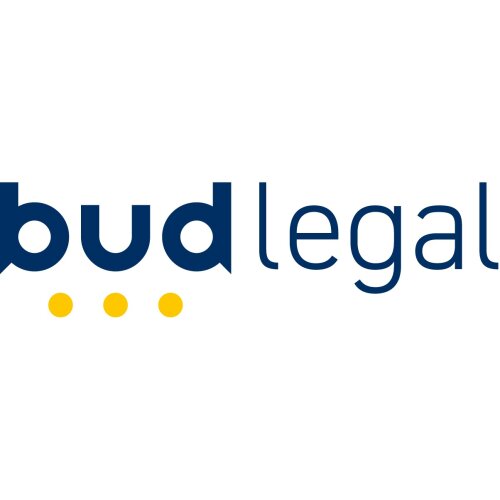Best Business Lawyers in Hungary
Share your needs with us, get contacted by law firms.
Free. Takes 2 min.
Or refine your search by selecting a city:
List of the best lawyers in Hungary
About Business Law in Hungary
Business law in Hungary is shaped by its membership in the European Union, balancing local regulations with EU directives. The country has developed a robust legal framework to facilitate business operations and protect foreign investments. With a diverse economy characterized by sectors such as manufacturing, agriculture, banking, and services, Hungary is an attractive destination for entrepreneurs and businesses. The Hungarian Commercial Code governs business and commercial transactions, while the Company Act outlines company formations and operations.
Why You May Need a Lawyer
There are numerous situations in which individuals or businesses may require legal assistance in Hungary. Some common scenarios include:
- Starting a business: Guidance on choosing the appropriate business structure and complying with registration requirements.
- Drafting and reviewing contracts: Ensuring agreements are legally sound and protect your interests.
- Intellectual property issues: Protecting trademarks, patents, and copyrights.
- Mergers and acquisitions: Assisting with due diligence, negotiations, and compliance with regulatory requirements.
- Employment law: Navigating the complexities of labor laws and employee agreements.
- Dispute resolution: Addressing conflicts or litigation with clients, partners, or competitors.
- Real estate transactions: Legal advice on buying, selling, or leasing property for business use.
Local Laws Overview
The following are key aspects of local laws relevant to businesses in Hungary:
- Company Formation: Businesses can be established in several forms, such as Limited Liability Companies (Kft), Joint-Stock Companies (Rt), and sole proprietorships, each with specific registration requirements.
- Taxation: Includes corporate income tax, value-added tax (VAT), and local business taxes. Companies must comply with tax regulations and filing deadlines.
- Employment Law: Governs labor contracts, working hours, minimum wage, and employee rights. Employers must ensure compliance with labor protection standards.
- Intellectual Property: Laws protect inventions, brands, and creative works with a focus on safeguarding entrepreneurs’ intellectual rights.
- Consumer Protection: Enforces standards on product safety, labeling, and fair trade practices to protect consumer rights.
- Competition Law: Prohibits anti-competitive behaviors and ensures fair market practices.
Frequently Asked Questions
What types of business entities can I establish in Hungary?
You can establish entities such as a Limited Liability Company (Kft), Joint-Stock Company (Rt), Partnership, or Sole Proprietorship, each with distinct legal and financial responsibility considerations.
How do I register a business in Hungary?
Business registration is performed through the Hungarian Court of Registration. You'll need to prepare certain documents including the company’s articles of association, have them notarized, and submit them electronically.
What are the common taxes that businesses must pay in Hungary?
Businesses are subject to various taxes including Corporate Income Tax, Value-Added Tax (VAT), and Local Business Tax. Each tax comes with specific regulations and deadlines.
Can a foreigner own a business in Hungary?
Yes, foreigners can own and operate businesses in Hungary without restrictions on ownership, subject to compliance with relevant registration and regulatory requirements.
What is the corporate tax rate in Hungary?
As of 2023, the corporate income tax rate in Hungary is 9%, one of the lowest in the EU, making it a favorable environment for business investment.
Do Hungarian labor laws favor employees or employers?
Hungarian labor laws balance the protection of employee rights with business flexibility, ensuring fair treatment while allowing business operations to remain competitive.
How long does it take to establish a business in Hungary?
In general, it takes around 1 to 2 weeks to fully establish a business in Hungary, assuming all documentation is in order and submitted correctly.
What protections are available for intellectual property?
Hungary provides robust protection for intellectual property through various laws, including patent, trademark, and copyright protections that align with EU standards.
Is it necessary to have a local director for a company in Hungary?
There is no requirement for a company to have a local director in Hungary; directors can be foreign nationals.
What legal recourse do I have in case of business disputes?
Dispute resolution can be pursued through negotiation, mediation, or legal proceedings in court. Arbitration is also a viable option for resolving business disputes efficiently.
Additional Resources
The following organizations and resources may be helpful for individuals seeking legal advice in business:
- Hungarian Chamber of Commerce and Industry: Offers guidance and resources for businesses operating in Hungary.
- Ministry of Justice: Provides information on legal processes and updates on changes in business-related legislation.
- European Union IP Helpdesk: Supports businesses in understanding and protecting intellectual property rights within the EU.
- Hungarian Investment Promotion Agency (HIPA): Offers assistance to foreign investors establishing businesses in Hungary.
Next Steps
If you need legal assistance in business, here are some steps you can take:
- Assess Your Needs: Determine the specific areas where you require legal help, such as company formation, contracts, or compliance issues.
- Research Law Firms: Look for law firms or legal practitioners in Hungary with experience in business law, keeping in mind their reputation and areas of expertise.
- Consult a Professional: Reach out to lawyers or legal advisors for consultations to discuss your situation and how they can assist you.
- Gather Relevant Documentation: Compile all necessary documents and information related to your legal matter for your consultations.
- Take Informed Decisions: Based on legal advice, make informed decisions and proceed with the necessary steps to address your business legal needs.
Lawzana helps you find the best lawyers and law firms in Hungary through a curated and pre-screened list of qualified legal professionals. Our platform offers rankings and detailed profiles of attorneys and law firms, allowing you to compare based on practice areas, including Business, experience, and client feedback.
Each profile includes a description of the firm's areas of practice, client reviews, team members and partners, year of establishment, spoken languages, office locations, contact information, social media presence, and any published articles or resources. Most firms on our platform speak English and are experienced in both local and international legal matters.
Get a quote from top-rated law firms in Hungary — quickly, securely, and without unnecessary hassle.
Disclaimer:
The information provided on this page is for general informational purposes only and does not constitute legal advice. While we strive to ensure the accuracy and relevance of the content, legal information may change over time, and interpretations of the law can vary. You should always consult with a qualified legal professional for advice specific to your situation.
We disclaim all liability for actions taken or not taken based on the content of this page. If you believe any information is incorrect or outdated, please contact us, and we will review and update it where appropriate.
Browse business law firms by service in Hungary
Hungary Attorneys in related practice areas.
Browse business law firms by city in Hungary
Refine your search by selecting a city.

















